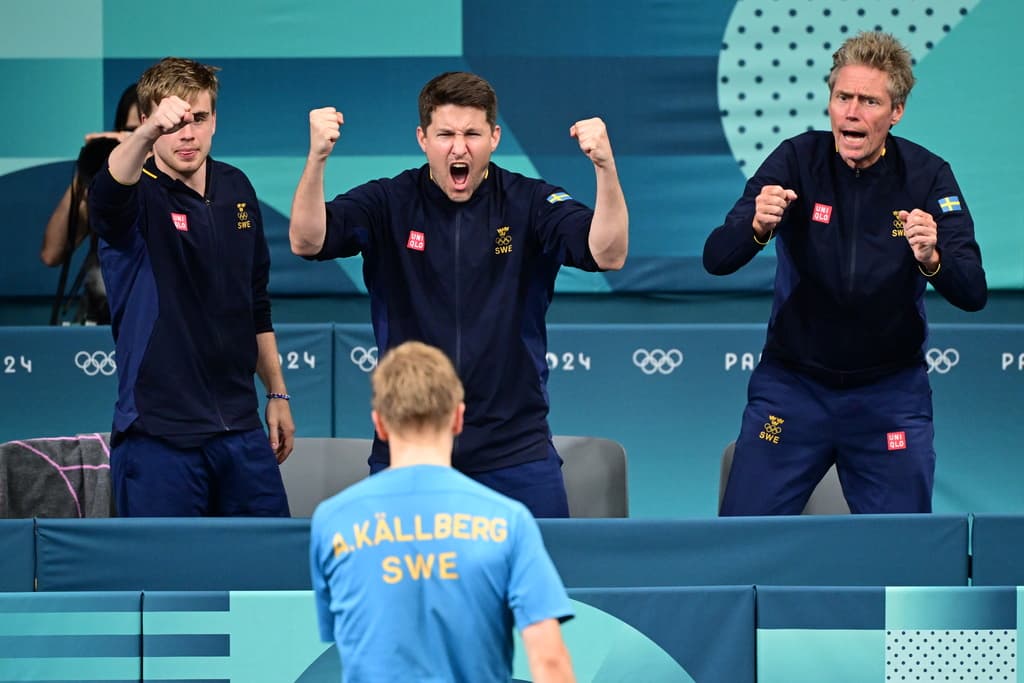A regular training session on a regular Olympic Games day. A completely regular, friendly greeting.
Or? Sweden's national team captain Jörgen Persson saw something else when China's Ma Long, considered by many to be the greatest table tennis player of all time, came forward and congratulated the Swedish successes in Paris the other day.
Yes, Ma Long in that way. It's big. It's the biggest, he has won the most. And it's not always they show such things, but just that they congratulate and think it's fun, it's awesome, says Persson.
"Total dominance"
Paradoxically, the Chinese seem to enjoy competing for medals with their old table tennis nemesis again.
They probably like it when we're back again, so it is. That they get to meet us in the big finals, it's something special with Sweden-China.
There is only one country that, apart from China, has managed to take World Championship or Olympic Games gold in the team event in the last 45 years. Sweden broke the Chinese wall in a classic World Championship final in 1989 and has three more World Championship titles since then. Jörgen Persson has been involved every time, most recently in 2000, with final victories over China on three occasions.
This gives inspiration to the Swedish players – Anton Källberg, Truls Möregårdh, and Kristian Karlsson – ahead of Friday's final against Ma Long and the gang.
China has had total dominance. But if we don't believe in it, there's no chance we'll succeed. Then we might as well have gone home now, says Anton Källberg, who decided the semifinal against Japan after a brilliant fifth and decisive match.
Only one lost match
In the Olympic Games, Chinese superiority is almost ridiculous. China's men have not only won all Olympic Games gold since the team event was introduced in 2008, they have not even been close to losing a final.
They have lost only one final match (against Japan in 2016). The other finals have ended 3–0 in matches, and in total, China has lost only eleven sets.
Anton Källberg was three years old when Sweden last beat China in a championship final in the team event. He only sees opportunities and doesn't want to settle for silver.
It's fun. But we have a chance to do something even bigger, something much bigger. So we're reloading for that and giving everything we have to make it happen. Because then it's really, really something special, says Källberg.
2008: 3–0 against Germany. Two sets lost.
2012: 3–0 against South Korea. Two sets lost.
2016: 3–1 against Japan. Four sets lost (one match + one set).
2021: 3–0 against Germany. Three sets lost.






